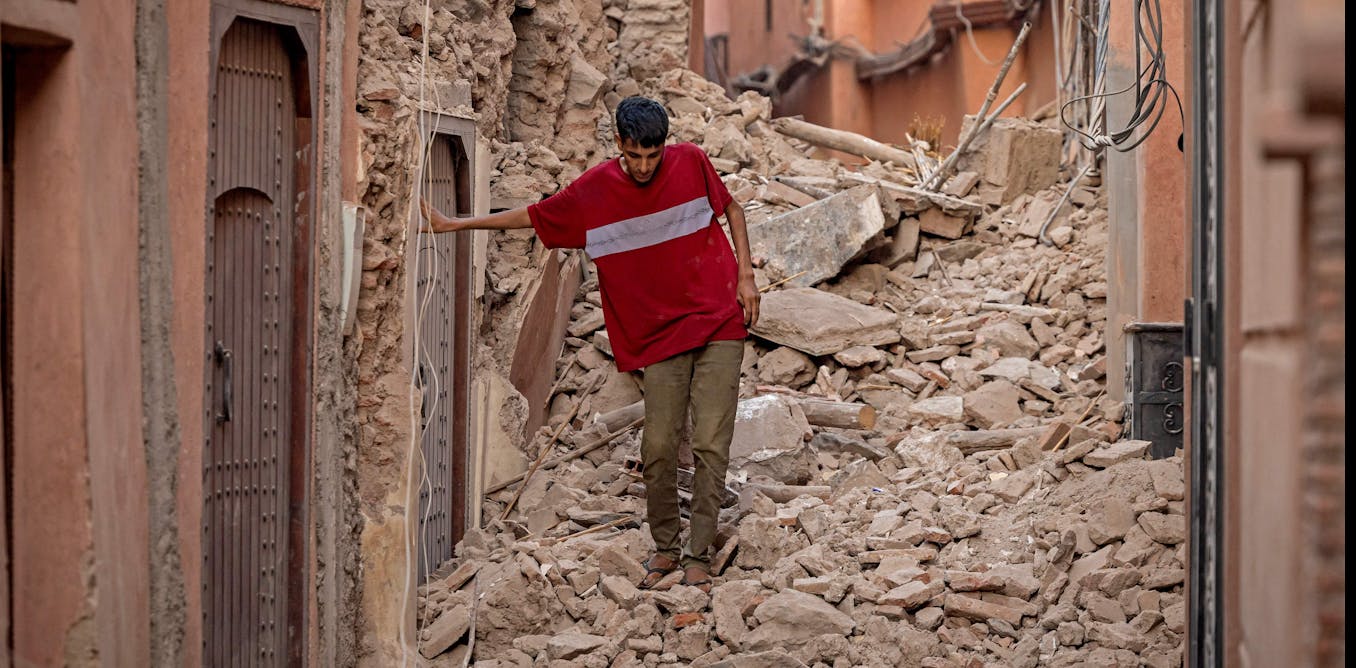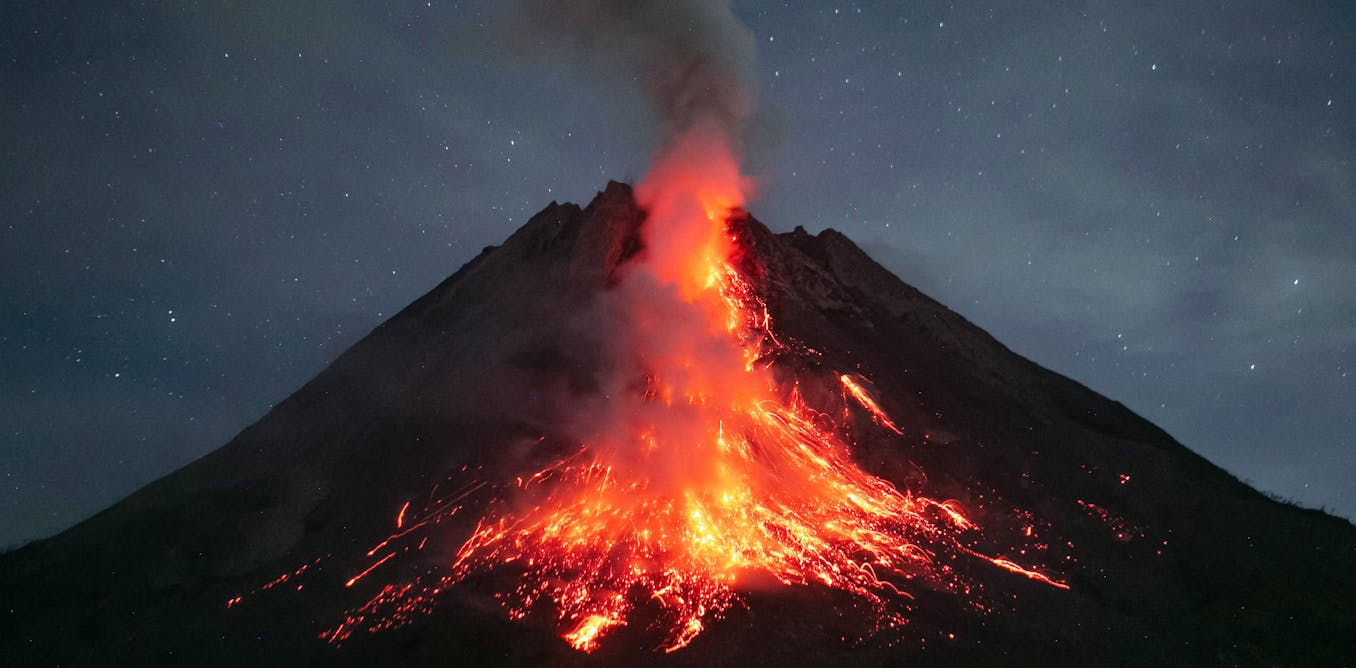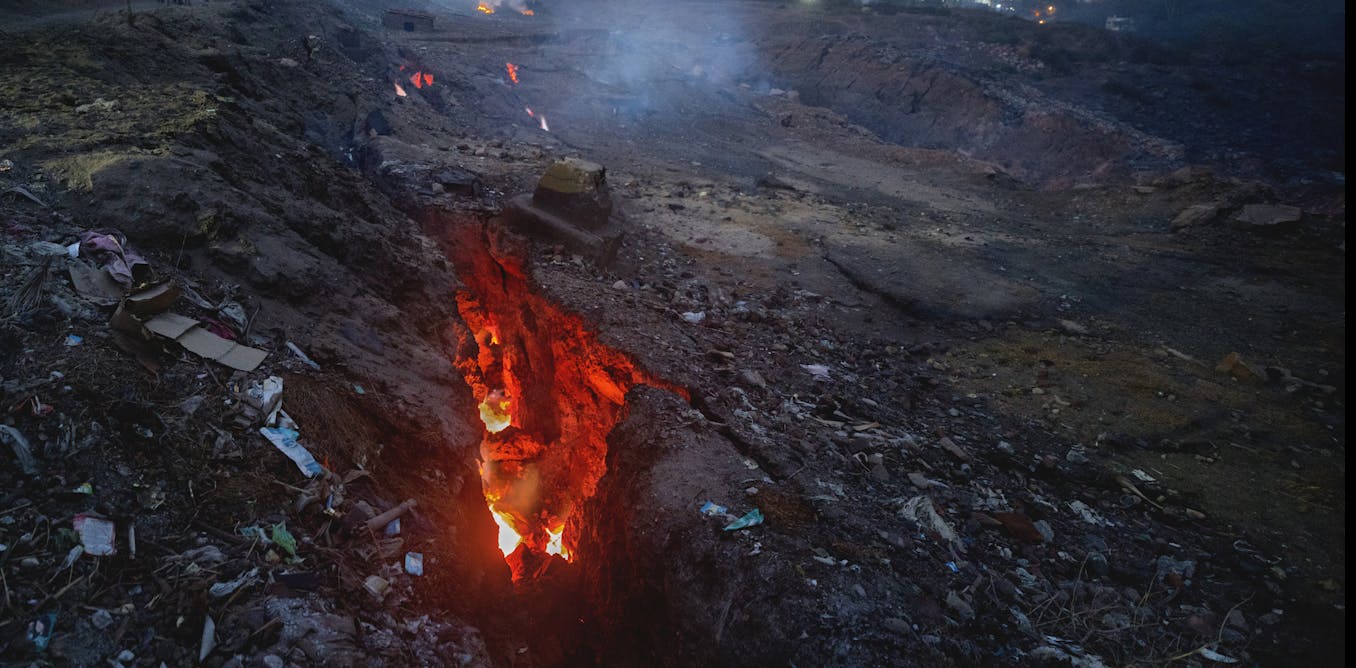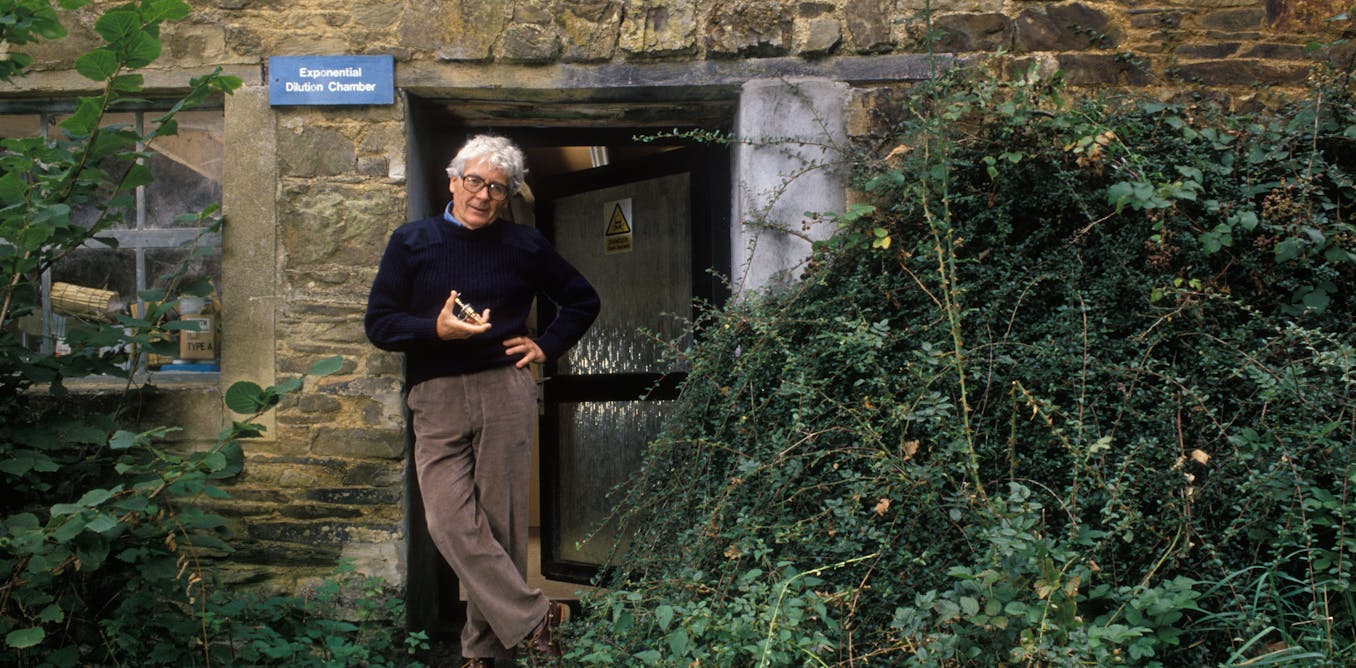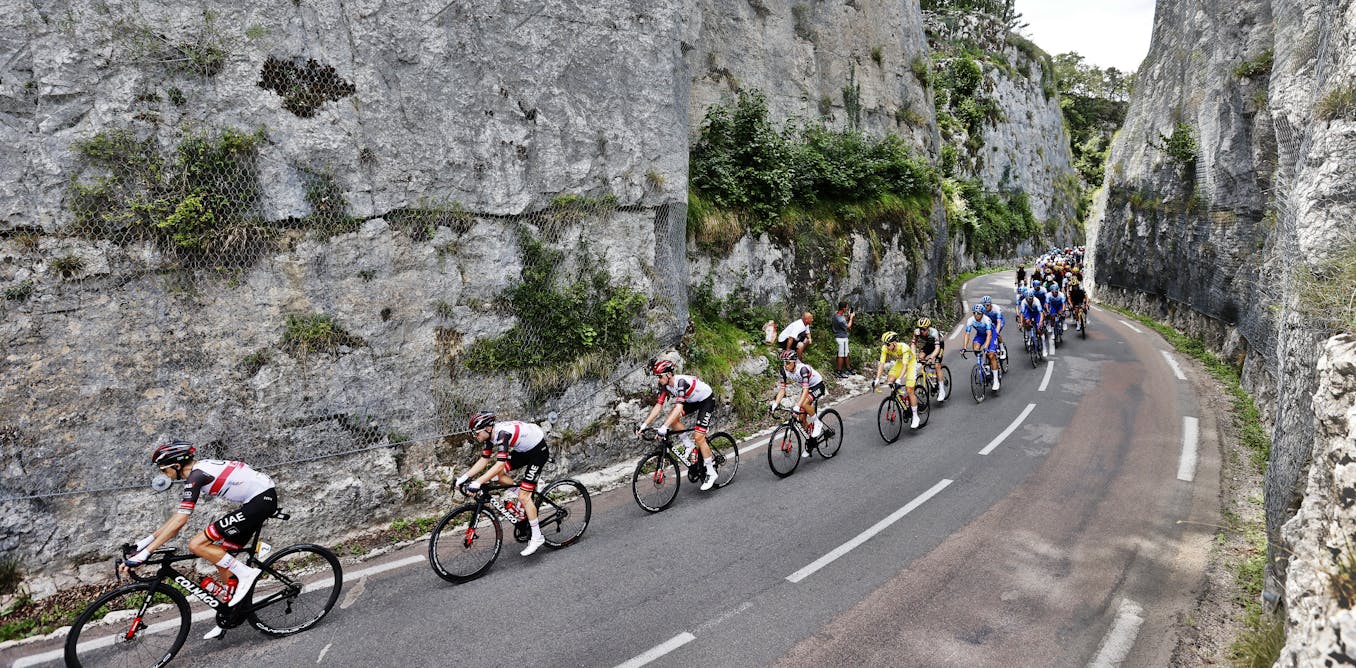'Many sleepless nights': why scientists who predict landslides are under enormous pressure
Satellites can detect land moving by just a few millimetres, but we can never be sure exactly how or when a slope will slide.
Nov. 17, 2023 • ~7 min
Living near the fire – 500 million people worldwide have active volcanoes as neighbors
For some people, it’s a choice based on cultural beliefs or economic opportunities provided by the volcano. Other times it’s less a choice than the only option.
July 13, 2023 • ~7 min
What are mud volcanoes?
When mud, fluids and gases erupt at the Earth’s surface, they hint at what’s happening underground, allowing scientists to build a more comprehensive 3D view of what’s going on inside our planet.
Dec. 19, 2022 • ~9 min
Lava from 2021 Icelandic eruption gives rare view of deep churnings beneath volcano
After centuries without volcanic activity, Iceland’s Reykjanes peninsula sprang to life in 2021 when lava erupted from the Fagradalsfjall volcano. New research
Sept. 16, 2022 • ~4 min
Sandcastle engineering – a geotechnical engineer explains how water, air and sand create solid structures
From capillary forces to sand grain shape, the simple mix of sand and water hides the of complexity within.
Aug. 19, 2022 • ~8 min
Why can’t we throw all our trash into a volcano and burn it up?
Volcanoes might seem like nature’s incinerators, but using them to burn up trash would be dangerous and disrespectful to indigenous people who view them as sacred.
Jan. 3, 2022 • ~5 min
/
4

